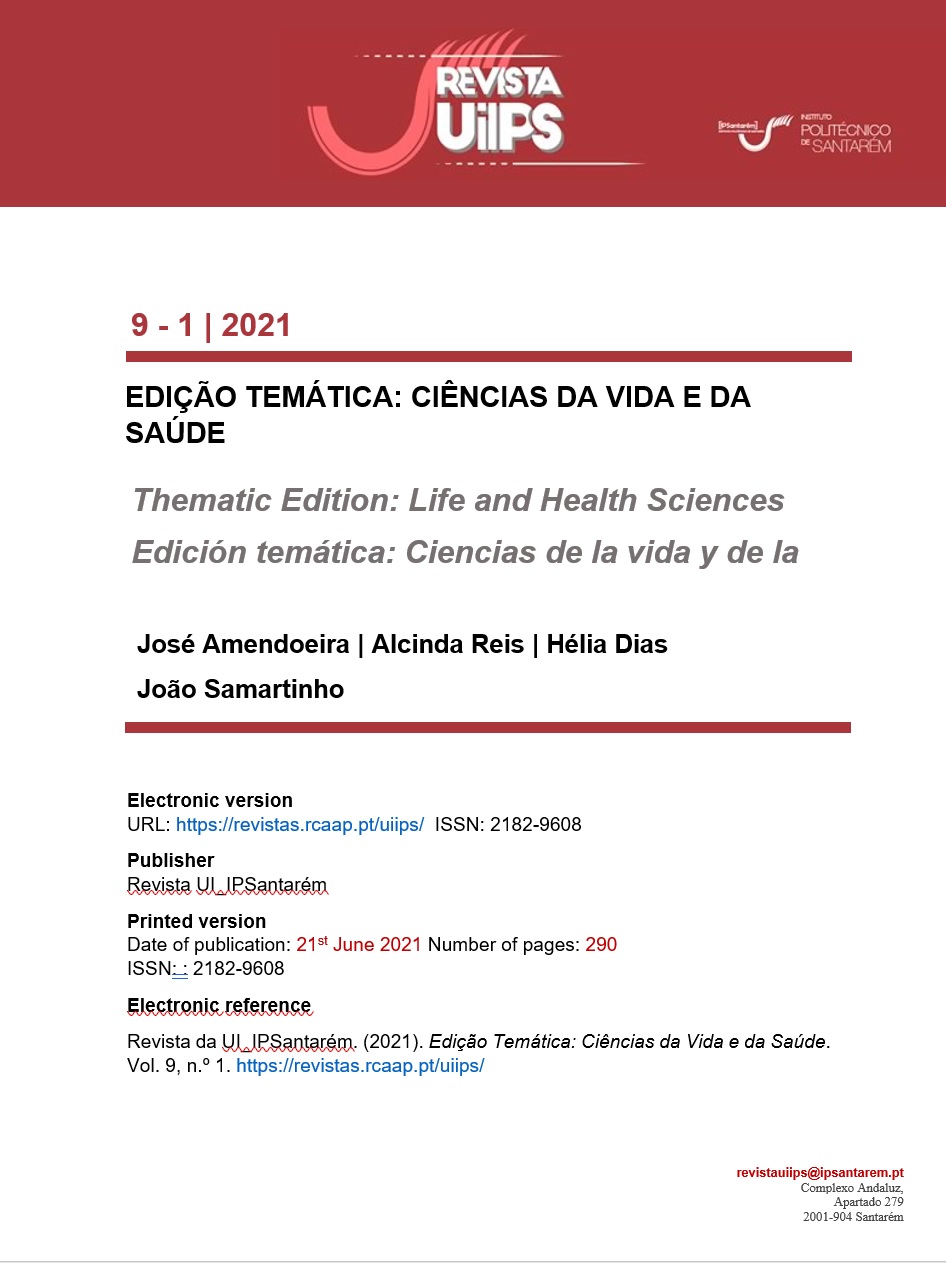A EFETIVIDADE DA EDUCAÇÃO PARA A SAÚDE NA CAPACITAÇÃO DA PESSOA NO CONTROLO DA HIPERTENSÃO ARTERIAL
DOI:
https://doi.org/10.25746/ruiips.v9.i1.24837Keywords:
Educação para a Saúde, Enfermagem, Hipertensão Arterial, Intervenção na Comunidade.Abstract
Este artigo adveio do trabalho realizado para a aquisição do grau de mestre em enfermagem comunitária, e refere-se ao estágio realizado na Freguesia de Ulme, Concelho da Chamusca. Um estilo de vida saudável ajuda a controlar a Hipertensão Arterial e reduzir o risco de doenças cardiovasculares e cerebrovasculares; a educação para a saúde é uma estratégia importante na capacitação para escolhas apropriadas. O Modelo de Sistemas de Betty Neuman fundamenta a intervenção desenvolvida, no reforço das linhas de resistência da Comunidade, sensibilizando para a adoção de estilos de vida saudáveis. Foi realizada uma revisão sistemática de literatura, através do método PI[C]OD, com a questão: Existe efetividade da educação para a saúde na capacitação da pessoa no controlo da Hipertensão Arterial? Verificou-se que, o desenvolvimento de programas de educação para a saúde é efetivo na capacitação das pessoas no controlo da Hipertensão Arterial, promovendo uma mudança nos comportamentos e uma melhoria do estilo de vida.
Downloads
Published
How to Cite
Issue
Section
License

This work is licensed under a Creative Commons Attribution-NonCommercial-NoDerivatives 4.0 International License.
Authors publishing in this journal agree to the following terms:
Authors retain copyright and grant the journal the right of first publication, with the article simultaneously licensed under the Creative Commons Attribution License that allows sharing of the work with acknowledgement of authorship and initial publication in this journal.
Authors are permitted to enter into additional contracts separately for non-exclusive distribution of the version of the article published in this journal (e.g., publish in an institutional repository or as a book chapter), with acknowledgment of authorship and initial publication in this journal.
Authors have permission and are encouraged to publish and distribute their work online (e.g., in institutional repositories or on their personal webpage) at any point before or during the editorial process, as this may generate productive changes, as well as increase the impact and citation of the published work.



